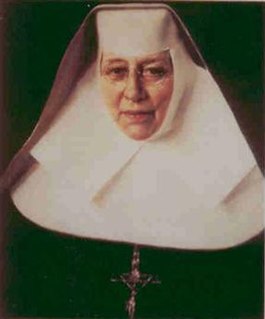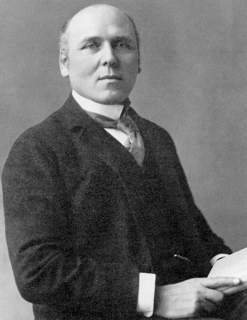A Quote by William Tyndale
No more doth it hurt to say that the body and blood are not in the sacrament.
Related Quotes
I [i.e., God] have given you baptism as a gift for the forgiveness of sins, and preach to you unceasingly by word of mouth concerning this treasure, sealing it with the Sacrament of my body and blood, so that you need never doubt. True, it seems little and insignificant that by the washing of water, the Word, and the Sacrament this should all be effected. But don't let your eyes deceive you.
What is more insane than to be partakers of the Sacraments of the Lord and not partakers of the words of the Lord? These men truly have to say: "In Thy Name we have eaten and drunk," and they will have to hear: "I do not know you!" (Luke 13:26-27). They eat and drink His Body and Blood in the Sacrament and do not recognize in the Gospel His members spread over the whole world, and for this reason they are not numbered among them at the Judgment.
[Christ's] mission and work it is to help against sin and death, to justify and bring life. He has placed his help in baptism and the Sacrament [i.e., communion/Eucharist/Lord's supper], and incorporated it in the Word and preaching. To our eyes Baptism [capitalized in original] appears to be nothing more than ordinary water, and the Sacrament of Christ's body and blood simple bread and wine, like other bread and wine, and the sermon, hot air from a man's mouth. But we must not trust what our eyes see.
To live, we must daily break the body and shed the blood of Creation. When we do this knowingly, lovingly, skillfully, reverently, it is a sacrament. When we do it ignorantly, greedily, clumsily, destructively, it is a desecration. In such desecration we condemn ourselves to spiritual and moral loneliness, and others to want.
He that doth righteousness; that is, righteousness which the gospel calleth so, is righteous; that is, precedent to, or before he doth that righteousness. For he doth not say, he shall make his person righteous by acts of righteousness that he shall do; for then an evil tree may bear good fruit, yea, and make itself good by doing so; but he saith, He that doth righteousness is righteous; as he saith, He that doth righteousness is born of him.
The Eucharist is not only a particularly intense expression of the reality of the Church's life, but also in a sense its fountainhead. The Eucharist feeds and forms the Church: 'Because there is one bread, we who are many are one body, for we all partake of the one bread' (1 Cor 10:17, RSV). Because of this vital link with the sacrament of the Body and Blood of the Lord, the mystery of the Church is savored, proclaimed, and lived supremely in the Eucharist.
People always say it's harder to heal a wounded heart than a wounded body. Bullshit. It's exactly the opposite—a wounded body takes much longer to heal. A wounded heart is nothing but ashes of memories. But the body is everything. The body is blood and veins and cells and nerves. A wounded body is when, after leaving a man you’ve lived with for three years, you curl up on your side of the bed as if there’s still somebody beside you. That is a wounded body: a body that feels connected to someone who is no longer there.



































